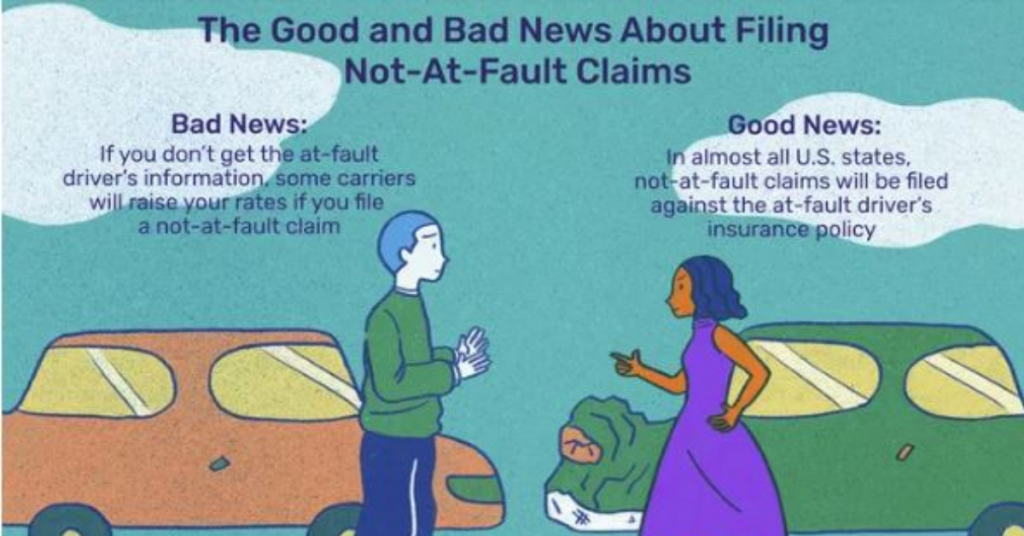
If you’re in an accident, and it is your fault, your insurance rate will increase. But even if the accident was not your fault, your insurance rate may still increase. Your insurance premium could increase, depending on the situation of an accident, your history of making claims, and the type of insurance coverage you have.
Key Takeaways
- If you are in a car accident, your car insurance rates may rise—even if the accident wasn’t your fault.
- In most states, the at-fault driver’s insurance will be expected to cover the cost, but your rates may still rise.
- If you file a not-at-fault claim, and your insurance carrier raises your rate, it might be time to shop around for a new insurance company.
Hypothetical Example
Suppose you’re driving home from work one day, paying close attention to the road ahead, and the drivers around you when suddenly another driver runs a stop sign and rams into the side of your vehicle.
Thankfully, no one is hurt, but your vehicle certainly is. You have good car insurance and know that you’re not at fault, so you carefully document the damage, exchange information with the other driver, and file a police report.
Then, you tell a friend about the accident, and that friend cautions you to think twice about filing a claim with your car insurance company because the company could jack up your insurance rate. Yes, it is true, even though the other driver’s insurance should cover the costs of repairing your vehicle. Some insurers will not increase your rate in that type of scenario.
The Good News About Not-at-Fault Claims
In almost all U.S. states, not-at-fault claims are filed against the at-fault vehicle owner’s insurance policy. If you are able to file against the at-fault party, you are less likely to see an increase in your insurance bill.
Even if you do need to file against your own policy, some insurance carriers still will not raise your rate for a not-at-fault claim.
The Bad News About Not-at-Fault Claims
Suppose that in the above scenario, the other driver fled the scene instead of calmly exchanging information with you. Unfortunately, some insurance carriers will raise your rates if you file a not-at-fault claim.
At least a not-at-fault claim might come with a smaller surcharge than an at-fault claim.
You might be amazed at the number of factors that can affect your car insurance rate. Filing an at-fault claim is all but a surefire way to raise your rates, though you might be able to avoid that through your insurance company’s accident-forgiveness program if it offers one. However, filing a not-at-fault claim can, in some scenarios, be used to raise your rate as well. This is one of them.
What You Can Do About It?
If you file a not-at-fault claim, and your insurance carrier raises your rate, it would probably be in your best interest to start shopping for a new carrier. New charges are applied on your insurance renewal date, so you should have some time between filing and actually paying for the surcharge.
Asking a prospective insurance company whether they surcharge for a not-at-fault accident is a great question when you’re calling around for quotes. It might even make you choose a slightly higher quote over a cheaper one from a company that could slap a surcharge on you down the road.
Think about it. Otherwise, if you have an accident and it’s not your fault, your first question will still be “How much is my insurance going to go up?”
What Types of Cars Have the Lowest Insurance Rates?
Some of the cheapest cars to insure include the Mazda CX-3 Sport, Honda CR-V LX, and Jeep Wrangler Sport S.
What Type of Accidents Will Raise My Insurance Rates?
If you’re found to be at fault for an accident, your insurer will likely raise your premiums, especially if it’s not your first accident. An insurer may also deem you a high-risk driver if you also make several claims for which you were not at fault. Tickets for infractions such as speeding that earn you points on your license can also often increase your insurance costs.
To read the full article, click here.